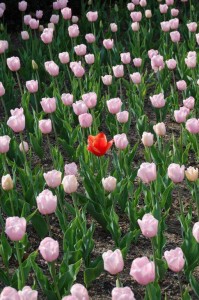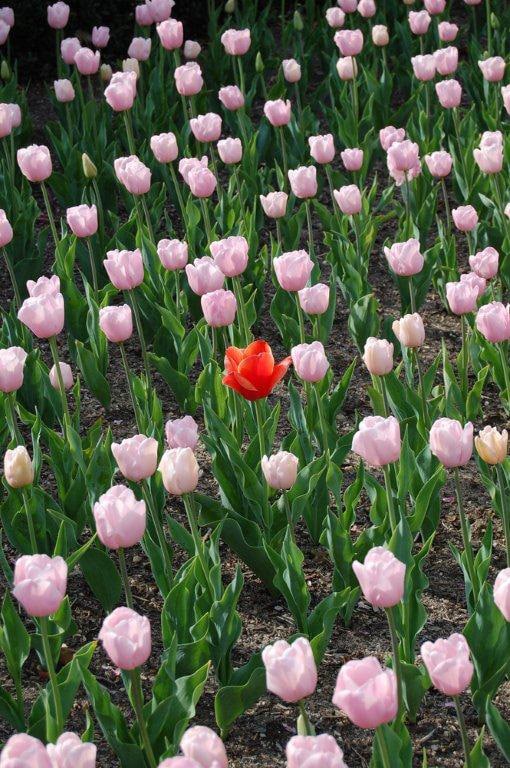
Sure, we could have simply tried to fit into an existing group like “fighting varietals,” but our wines were more than that. We were producing wine as a staple. We wanted to be what the French called ‘Vin d’table’ (table wine) or even what they called ‘Vin d’Pays’ (country wine). We wanted a category that defined an everyday (week night) wine that was a staple for our customers. We also wanted a term that was more descriptive of brand loyalty.
So we created our own term, “personal house wine.” And, boy, did we take flack from the industry for that term! They said, “It can’t be called ‘house wine’ because everybody knows that’s the term used in restaurants (restaurant ‘house wine’).” We said, “But if we go to your house and open your fridge, we would see the brand of wine you buy on a regular basis – that’s your personal house wine.” Several years later, the entire industry began referring to a staple, everyday drinking wine as “personal house wine.”
We also wanted a term that defined the price at which the majority of wine sold. The terms at the time were “average price” and the “mean price.” But we wanted a phrase that clearly defined the price point at which wine sold the fastest. This element of speed gave us the idea to use the term, “velocity price point.” The term was so descriptive; folks began using it almost immediately.
So we created a category and term that fit our product – “velocity price point, personal house wine.”
Then we were challenged by the federal label approval process. At the time, the only term available on government approved labels for a négociant was “cellared by … ” Only producers with full winery licenses could claim the term, “produced by … ” But we wanted a term that conveyed more control over the production than simply buying wine in bulk and bottling it. After all, we had a skilled winemaker and although we did not as yet have a complete set of winery licenses, we did fine-tune the aroma, color, acidity, mouth feel, taste profile, blending and finishing of our wines. So we created the word “vinted.” It wasn’t in the dictionary, but it had the sound we wanted and used the first part of the word “vintner.” It ended in “ed” so it implied that something was being done, and it fit what we did well. So we applied for a label approval that read “Vinted by Barefoot Cellars.” Well, the first government inspector denied it because he never saw it before. When we reapplied a few days later, we got a different inspector and she approved it because her agency had never denied it before. Today, the term “vinted” is widely used on wine labels.
There was a time before terms like “social network,” “dairy substitute,” and “personal house wine” were used. So today, when we speak to students of entrepreneurship across the country, we encourage them to create their own terms, define their own niches, and be leaders in their own new categories. What is your new term for defining your product or service? It just might catch on. Don’t be afraid to name your own tune!
Who We Are

Michael Houlihan and Bonnie Harvey co-authored the New York Times bestselling business book, The Barefoot Spirit: How Hardship, Hustle, and Heart Built America’s #1 Wine Brand. The book has been selected as recommended reading in the CEO Library for CEO Forum, the C-Suite Book Club, and numerous university classes on business and entrepreneurship. It chronicles their humble beginnings from the laundry room of a rented Sonoma County farmhouse to the board room of E&J Gallo, who ultimately acquired their brand and engaged them as brand consultants. Barefoot is now the world’s largest wine brand.
Beginning with virtually no money and no wine industry experience, they employed innovative ideas to overcome obstacles, create new markets and forge strategic alliances. They pioneered Worthy Cause Marketing and performance-based compensation. They built an internationally bestselling brand and received their industry’s “Hot Brand” award for several consecutive years.
They offer their Guiding Principles for Success (GPS) to help entrepreneurs become successful. Their book, The Entrepreneurial Culture: 23 Ways To Engage and Empower Your People, helps corporations maximize the value of their human resources.
Currently they travel the world leading workshops, trainings, & keynoting at business schools, corporations, conferences. They are regular media guests and contributors to international publications and professional journals. They are C-Suite Network Advisors & Contributing Editors. Visit their popular brand building site at www.consumerbrandbuilders.com.
To make inquiries for keynote speaking, trainings or consulting, please contact sales@thebarefootspirit.com.







